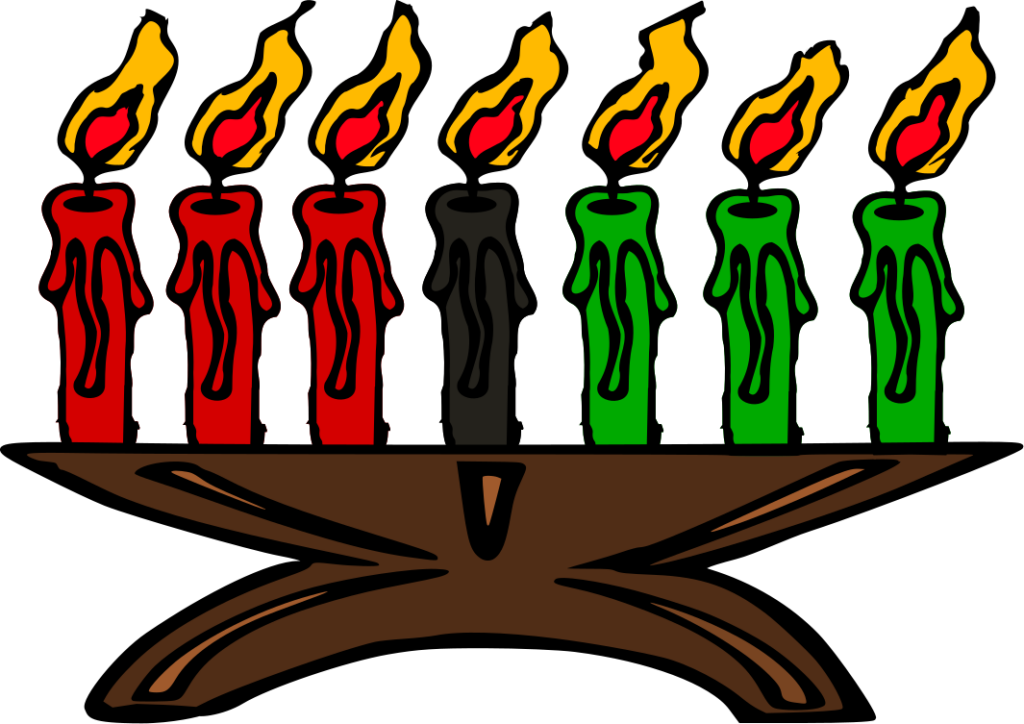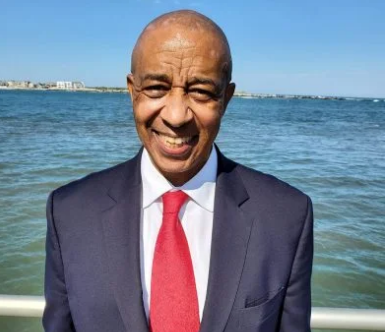Kwanzaa: ‘What’s the News?’

Image courtesy of Nesnad, Wikimedia Commons.
BY DANIEL WINNER | AC JosepH Media Correspondent
ATLANTIC CITY — Habari gani?
That’s Swahili for “what’s the news?” During the annual holiday of Kwanzaa, the group leader will ask the community gathered this very question, to which they will respond with an African virtue celebrated on that same day.
Kwanzaa is currently the fastest-growing holiday in the world, with around 30-40 million observers all over the world.
The name of the holiday of Kwanzaa comes from a Swahili saying, “matunda ya kwanza” which means “first fruits of the harvest.” The fruits celebrated during Kwanzaa are those that have figuratively ripened for the African American community throughout the previous year as well as those that continue to ripen in the struggle for social autonomy and establishment of cultural identity.
Kwanzaa is not merely a holiday. It is a philosophy, a lifestyle, and a spiritual foundation. It is an example of the richness and strength of a people who continue to realize the fullness of human potential.
First established in 1966 by Dr. Maulana Karenga in the aftermath of the Watts Riots in the Black Freedom Movement, Kwanzaa is celebrated from Dec. 26 to Jan. 1. Each day corresponds to one of the “Nguzo Saba” or “Seven Pillars.” These are virtuous principles, inspired by both ancient and modern African societies, such as those found in Egypt, Nubia, and Kenya, that are today meant to govern the ethical lives of African Americans and African diasporic communities internationally.
“Kwanzaa insists on us facing our African-ness, appreciating it, and raising it to the level of sacred observance,” Karenga had said about creating the holiday. “We get our sense of self from how we assert ourselves in the world.”
The seven principles are as follows:
- Umoja (Unity) – To strive for and maintain unity in the family, community, nation and race.
- Kujichagulia (Self-Determination) – To define ourselves, name ourselves, create for ourselves and speak for ourselves.
- Ujima (Collective Work and Responsibility) – To build and maintain our community together and make our brother’s and sister’s problems our problems and to solve them together.
- Ujamaa (Cooperative Economics) – To build and maintain our own stores, shops and other businesses and to profit from them together.
- Nia (Purpose) – To make our collective vocation the building and developing of our community to restore our people to their traditional greatness.
- Kuumba (Creativity) – To do always as much as we can, in the way we can, in order to leave our community more beautiful and beneficial than we inherited it.
- Imani (Faith) – To believe with all our heart in our people, our parents, our teachers, our leaders and the righteousness and victory of our struggle.
For each of the seven days, a cloth made of straw or cloth called an “mkeka” is laid down, on which is placed a candelabra called a “kinara.” The kinara consists of seven candles: three red, three green and one black in the center, all of which correspond to the seven virtues. The red candles represent the past, the blood of the community and the struggles that are to be overcome. The green candles represent the future, the earth and the labor the community undergoes to support itself. The last black candle represents the people.
“Mazao” or crops are then set on the mat, representing the community’s collective actions. “Muhindi” or corn is often used, one ear for each child in the household.
A unity cup, known as the “kikombe cha umoja” is used every day in order for celebrants to share in the spirit of thanks for those who they find to be an inspiration in their lives. Libations or “tambiko” are poured out, usually of wine or grape juice, while reciting the names of ancestors and personal role models. Everyone then partakes of the cup as it is passed around by hand.
It is also customary for elders and parents to give gifts called “zawadi” to children during the week. These can include any number of goods, but are usually those that are relevant to the daily principle or related to the advancement of their own African American values and heritage. Books are among the most common zawadi gifts.
In celebration of the holiday season, Front Runner New Jersey will share with readers the seven principles of Kwanzaa for the next seven days. Until next time, Heri za Kwanzaa! (That is, Happy Kwanzaa!)
EDITOR’S NOTE: Daniel Winner has a double major in Religious Studies and Japanese from Penn State University and has traveled internationally to the Far East on several occasions. His insights on Buddhism and Asian culture give a unique view of historical and modern trends. He will be serving as a contributor for Front Runner New Jersey.
Follow Us Today On:
Note from AC JosepH Media: If you like this story and others posted on Front Runner New Jersey.com, lend us a hand so we can keep producing articles like these for New Jersey and the world to see. Click on SUPPORT FRNJ and make a contribution that will go directly in making more stories like this available. Thank you for reading!







